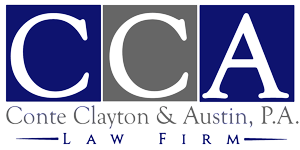What Are The Common Costs Associated With The Sale of New Jersey Real Estate?
A common question among both commercial and residential property owners is, “what will it cost to sell my property?” Often, sellers who neglect to consider what is involved in the sale of real property are surprised by some of the taxes and fees that come along with the process. Below is a list of some common expenses associated with the seller’s side of a real estate transaction:
- Real Estate Transfer Tax
The State of New Jersey imposes a fee upon the recording of deeds transferring title of all real estate within the state. Unlike the Mansion Tax, the Realty Transfer Tax is the responsibility of the Seller. The fee is required to be paid as a prerequisite to recording the Deed and is calculated based upon the sale price of the property, or in certain circumstances is derived the assessed value of the property.
Some sellers and transactions are entitled to partial or complete exemptions from the transfer tax. For example, certain qualified senior citizens, disabled persons or sellers of low or moderate income housing may be entitled to a partial exemption. Certain transfers, such as a sale or property between a parent and child may be exempt.
The amount of Transfer Tax you may be required to pay can be determined by calling our office, or by reviewing the table published by the New Jersey Division of Taxation by following this link: https://www.state.nj.us/treasury/taxation/pdf/lpt/feeschedunder350.pdf
- Recording Fees
Recording fees are charged by each county when documents are submitted for recording. When purchasing property, the Deed and Mortgage are typically recorded and that fee is paid for by the Buyer. When selling, if there is an open mortgage, including a line of credit secured by your property, it will be necessary to record a release to extinguish the mortgage. The fee for recording the release of any mortgages is the seller’s responsibility.
Recording fees vary by county and are charged on the basis of the number of pages recorded.
- Real Estate Commissions
If the property was sold through a licensed real estate agent, the Seller is typically responsible for payment of the realtor commissions, pursuant to the listing agreement or similar contract that you entered into with the real estate agent. That fee is normally paid at closing.
- Repairs
Many real estate transactions are on an “as-is” basis. However, it is not uncommon for a seller of an “as-is” property to elect to make certain repairs to address defects found by the buyer during their due diligence for the purpose of preventing the buyer from terminating the transaction in accordance with the buyer’s inspection contingency.
- Certificate of Occupancy
In many cases, the seller is generally obligated to obtain a Continuing Certificate of Occupancy from the municipality. While the specific requirements will vary by town and property type, generally there will be an inquiry by the building department to determine if there are any open construction permits associated with the property, and an inspection to confirm that any buildings on the property are equipped with required smoke detectors will take place. The municipality may also require the seller to repair any obvious hazards as a condition of issuing the Continued Certificate of Occupancy. The fee for this varies by municipality, but is typically around $250. Contact your local building department for specifics.
- Attorney’s Fees
Obviously (this is an Attorney Blog), the attorney fees associated with the sale of the property should be factored in. Please call us for specific prices and estimates based upon the terms of your transaction.
- Closing Adjustments
A number of items are adjusted for at closing. Sometimes the adjustments are in the seller’s favor, and sometimes not. Things like property taxes, HOA or condo fees, prepaid rent by tenants of the property, or other pre-paid or past due charges will be adjusted at closing, usually on a pro-rata basis.
Environmental costs are more common in commercial and industrial real estate transactions than in residential transactions, but can be present in both. Residential environmental issues are commonly associated with defective or leaky underground oil tanks. Certain types of commercial real estate transactions trigger state environmental reporting requirements. If the property is subject to the Industrial Site Remediation Act (ISRA), for example, the seller may be required to file a General Information Notice with the NJDEP and have a Licensed Site Remediation Professional (LSRP) conduct an inspection and investigation known as a Preliminary Assessment for the property prior to any sale.
It’s always a good idea to consult with a qualified real estate attorney when you plan on selling property to help you understand what the cost of your transaction will be.



